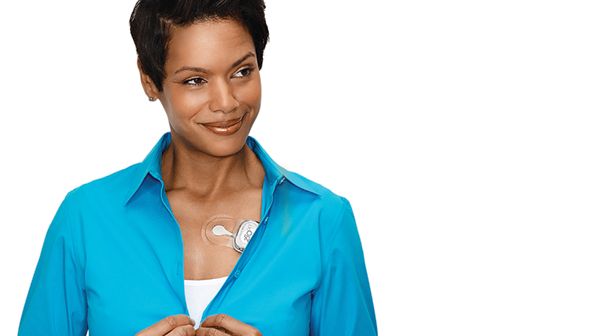

“That’s a very natural expectation for how this will play out in the marketplace, assuming that the Apple Watch is successful and works as advertised,” he says.

It will be acceptable to Irhythm as well. Mr Sung says the company has heard anecdotes of patients coming in with notifications from their Apple Watch and then being prescribed the Zio device. In other words, a quarter of the alerts being false positives is acceptable in the eyes of the trial’s designers. The threshold for a hit here is specified: if AF detected by the watch is confirmed in 75% of cases this will be considered clinically meaningful. The second primary endpoint looks at AF detection simultaneously by watch and patch.
#ZIO XT HEART MONITOR PATCH#
The first involves the detection of AF using an ambulatory ECG monitor patch in participants who had previously received an irregular pulse notification on their watch.īut the trial’s protocol does not specify a target level of concordance, so when the figure is presented on Saturday it will be up to cardiologists to determine whether it is meaningful. The primary endpoints of the Apple Heart Study, both of which concern only participants aged over 65, are worth looking at closely. He admits that the cardiology community will be concerned with the trial’s false positive rate, and about whether the Apple Watch could be alerting patients unnecessarily.īut it will take monitors like Irhythm's Zio to determine whether these positives are in fact false – so Zio sales could increase either way. “With any broad consumer-based screener there’s a question of, how accurate is it?” says Derrick Sung, executive vice-president of strategy and corporate development at Irhythm.
#ZIO XT HEART MONITOR TRIAL#
If the trial does show the Apple Watch to be reasonably accurate at detecting the condition, another company stands to benefit from its increased use as an arrhythmia screen: Irhythm Technologies makes a cardiac monitor, called Zio, that could be used to confirm or rule out AF after detection by Apple’s device. The way the trial has been designed is also somewhat questionable. This looks at the ability of the Apple Watch to screen healthy people for atrial fibrillation, but there are doubts about the utility of such an approach, not least because it could risk overdiagnosis. At the upcoming meeting of the American College of Cardiology the first session examining late-breaking clinical data will be devoted entirely to a single trial: the 420,000-strong Apple Heart Study.


 0 kommentar(er)
0 kommentar(er)
